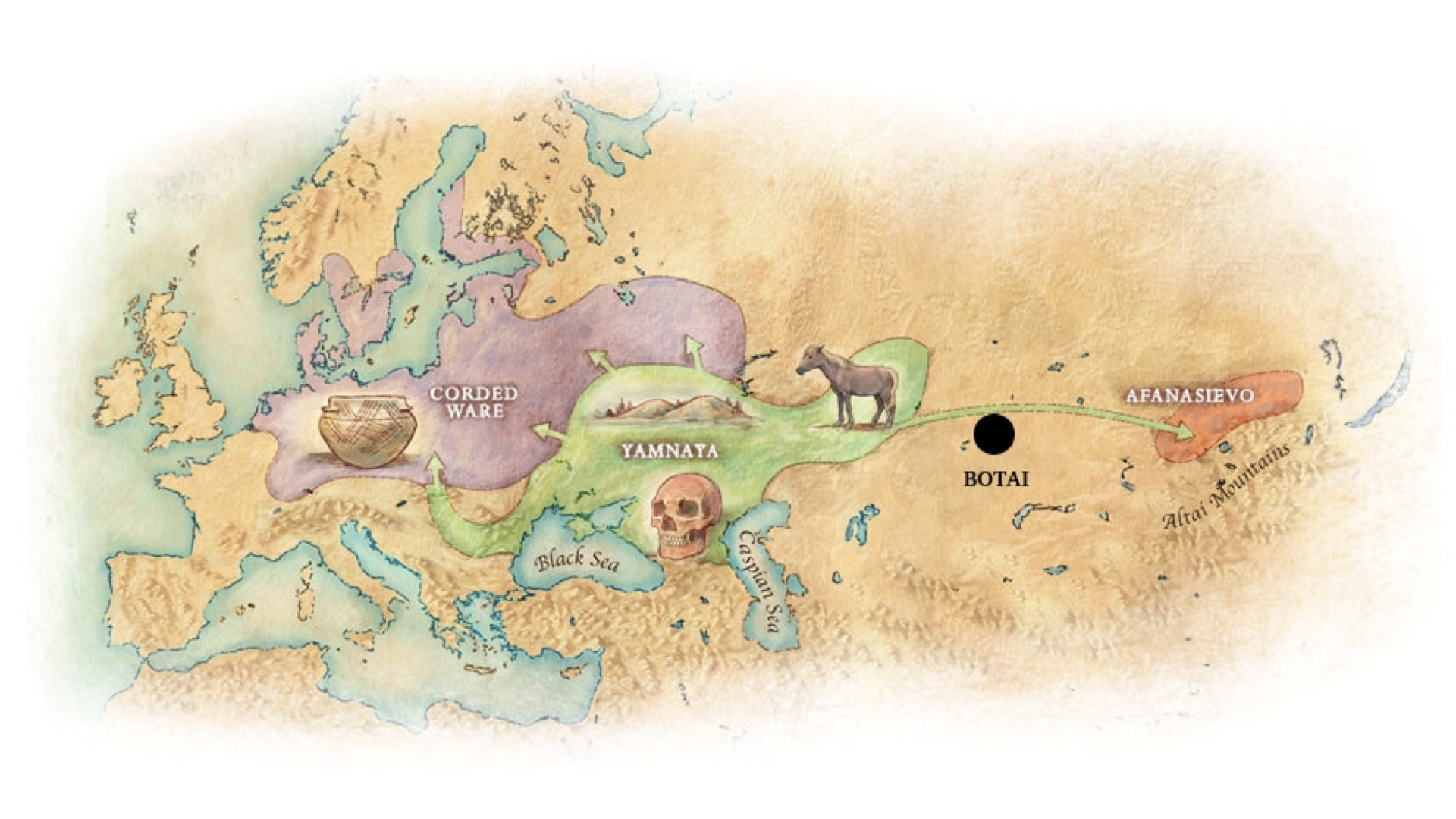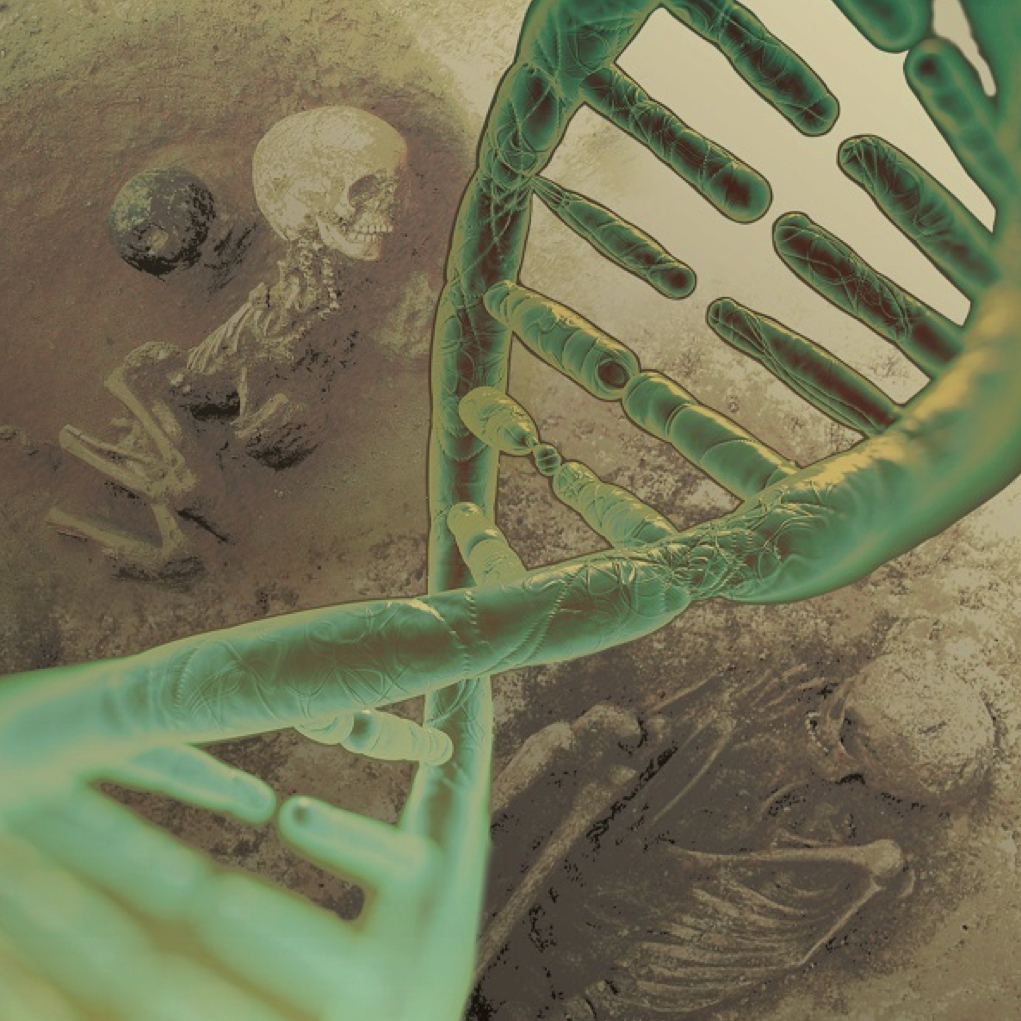I. Archaeogenetic research of domesticated animals
Doctoral School: Genetics Doctoral Program, Doctoral School of Biology, Faculty of Science, Eötvös Loránd University, Budapest
Thesis supervisor: Anna Szécsényi-Nagy, PhD
Location of studies (in Hungarian): HUN-REN Bölcsészettudományi Kutatóközpont, Archeogenomikai Intézet (Budapest, 1097 Tóth Kálmán utca 4.)
Application deadline: June 2024
The potential for archaeogenetic research on domestic animals is extensive. These include exploring the microevolutionary and selection processes involved in domestication and breeding, as well as gaining a more precise understanding of the relationship between humans and animals. Among domesticated animals, equine bioarhaeological research has been and continues to be a prominent field of study, thanks to the diverse roles of domestic horses and their close relationship with humans.

The PhD student will be responsible for mastering and applying population genetic, phylogenetic and archaeogenomic analyses on genomes extracted from the remains of domestic animals, and for developing statistical solutions to achieve the project's objectives. The planned archaeogenomic analyses will be supported by the archaeological and archaeozoological experts of the team, while the laboratory part of the work will be carried out by assistants at the Institute of Archaeogenomics. The infrastructure for the research will be provided by the laboratory of the Institute of Archaeogenomics of the HUN-REN Research Centre for the Humanities. In addition to horses, research on several other domestic animals (such as camels) may be included in the PhD topic. The thematic focus and financial support for the research are provided by the MTA-BTK Momentum Bioarchaeology Program.
The PhD work requires knowledge of bioinformatics and Linux OS, R or Python programming.
Required language skills: English
Recommended language skills: German
Further requirements: degree in biology, bioengineering, physics or biophysics (MSc), basic bioinformatics skills
Number of potential candidates: 1
II. Development of whole genome analyses of ancient samples
Doctoral School: Genetics Doctoral Program, Doctoral School of Biology, Faculty of Science, Eötvös Loránd University, Budapest
Thesis supervisor: Anna Szécsényi-Nagy, PhD
Location of studies (in Hungarian): HUN-REN Bölcsészettudományi Kutatóközpont, Archeogenomikai Intézet (Budapest, 1097 Tóth Kálmán utca 4)
Application deadline: June 2024
Within the field of archaeogenetics, bioinformatics, the development of different ways of processing ancient genomic data, is becoming increasingly important. The research team of the Institute of Archaeogenomics, HUN-REN Research Centre for the Humanities, has recently developed an informatics system for processing raw DNA data, with associated bioinformatics tools to monitor potential contamination of samples or, for example, to help track heritable diseases and phenotype-associated markers (Gerber et al. 2022).

The central theme of the present PhD thesis is to test, adapt and develop additional methods useful for deeper analysis of ancient genomes. One possible direction of the PhD work is the development of methods for population genetic analyses, while another focuses on the study of genetic selection of specific genomic regions or genetic diseases in ancient populations.
Exploring the possibilities and applications of machine learning in archaeogenetic research is a central theme, requiring both computational interest and a solid statistical knowledge. The PhD work requires knowledge of bioinformatics and Linux OS, R or Python programming.
The infrastructure for the research is provided by the laboratory of the Institute of Archaeogenomics of the HUN-REN RCH.
Required language skills: English
Further requirements: degree in biology, bioengineering, physics or biophysics (MSc), advanced Linux OS skills, basic programming and biostatistics skills
Number of potential candidates: 1



